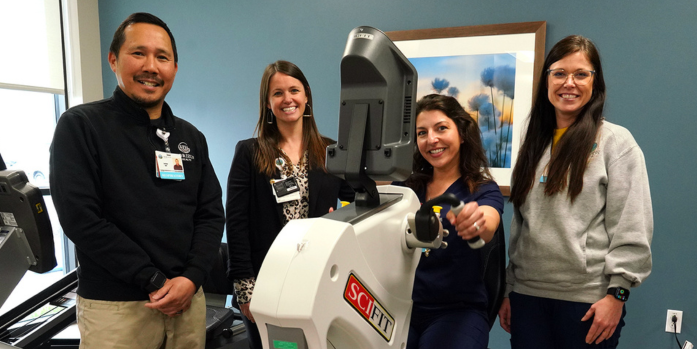Non-Surgical Procedure Can Relieve Chronic Knee Pain
- Category: News
- Posted On:
- Written By: Horizon Health
Individuals who suffer from chronic knee pain have another pain-relief option to consider.
A non-surgical procedure called genicular nerve radiofrequency ablation (RFA) is available at Horizon Health for osteoarthritis pain. Osteoarthritis is the most common form of arthritis in the knee.
RFA works by applying heat to deaden the nerves around the knee (the genicular nerves), eliminating the transmission of pain signals from the knee to the brain. As a result, the patient can experience long-term pain relief lasting approximately six to 12 months.
The nerves often attempt to recover from the initial ablation around this time, but the procedure can be repeated as needed. With each ablation of the nerves, their ability to recover is diminished, so each repeated procedure should work better and for a longer period of time.
Traditional non-surgical treatments for chronic knee pain include physical therapy, oral pain relievers, and various injections into the knee joint. While those methods can be effective, some patients may still experience a certain level of knee pain. That is where RFA can help, says Lee Webber, certified registered nurse anesthetist (CRNA) at Horizon Health.
“A lot of people are walking around with non-surgical knee pain,” Webber explained. “For some patients, RFA is a viable alternative to taking over-the-counter or prescription pain medications.”
The procedure is performed by the CRNAs at Horizon Health and requires only local anesthetic and optional mild sedation.
The procedure is minimally invasive and only takes about 30 minutes to perform. It is done on an outpatient basis and patients return home the same day. Patients benefit from a short recovery period (if done without sedation, patients can return to work the same day), with noticeable relief usually occurring within 3-4 weeks, Webber said.
RFA can not only help reduce non-surgical knee pain, but it can also help control pain after total knee replacement surgery. According to published findings by the National Institutes of Health, 10 to 34 percent of patients experience long-term pain after total knee replacement.
To determine if radiofrequency ablation can help with your knee pain, talk with your primary care provider. For more information about the procedure, call (217) 466-4226.



